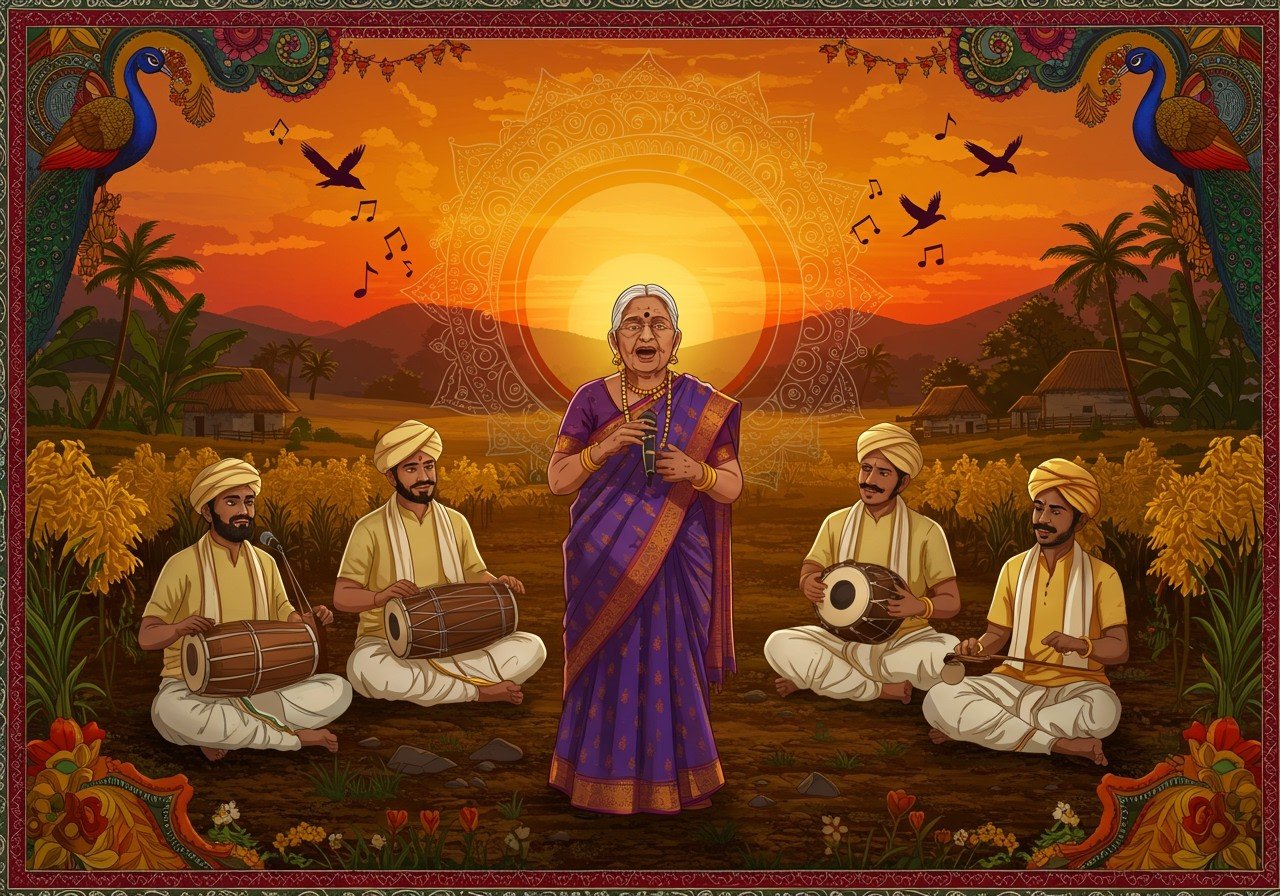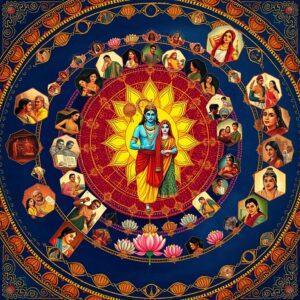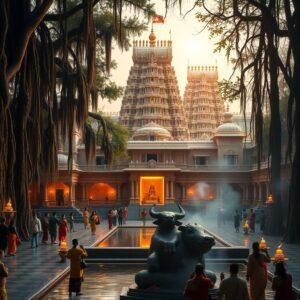
Janapada Geete, Karnataka’s traditional folk songs, embody the state’s vibrant cultural legacy. Passed down through generations, these songs are deeply woven into the everyday lives and rituals of the people. Let’s delve into the captivating world of Janapada Geete and discover their significance in preserving local traditions.
The Historical Roots of Janapada Geete
Janapada Geete’s origins trace back to ancient Karnataka, evolving through oral transmission over centuries. These songs were essential to the agricultural and pastoral way of life, reflecting the daily experiences of the people. Regional dialects and languages have profoundly shaped their development. Folk musicians, known as ‘Janapadaru,’ are vital in safeguarding these traditions. Historical events and migrations have also influenced Janapada Geete’s evolution, with strong ties to ancient Vedic traditions.
Diverse Forms of Janapada Geete
Janapada Geete encompasses various forms, each with distinct characteristics:
- Sobane Pada: Songs traditionally sung by women during rituals, festivals, and ceremonies, often expressing deep emotions and cultural values.
- Lavani: Known for its energetic rhythm and captivating performance style, Lavani is a popular form of folk music often performed at social gatherings and celebrations.
- Kolata Hadugalu: Accompanying the traditional stick dance, these rhythmic songs add a dynamic and visual element to folk performances.
- Gigi Pada: Soothing lullabies sung to infants, reflecting the tender and nurturing aspects of folk traditions.
- Koluva Geethegalu: Work songs sung during agricultural activities, expressing the connection between people, land, and labor.
- Beesu Kamsale: A captivating blend of music and dance using cymbals, creating a vibrant and energetic performance.
- Naatya Geethe: Songs intertwined with storytelling and drama, often depicting mythological tales or historical events.
These diverse forms showcase the richness and depth of Karnataka’s folk music traditions.
Cultural Significance of Janapada Geete
Janapada Geete holds a vital place in Karnataka’s cultural and social fabric. Performed during festivals and community gatherings, these songs preserve local history, folklore, and moral values. Women play a crucial role in performing and preserving these traditions, passing them down through generations. Janapada Geete also influences contemporary Kannada music and cinema, demonstrating their enduring appeal.
Instruments of Janapada Geete
Traditional instruments enhance Janapada Geete performances:
- Dolu: A traditional drum providing rhythmic structure and energy to the music.
- Nadaswaram: A wind instrument prominent in South Indian folk music, adding a melodic and resonant quality.
- Tamboori: A string instrument creating a drone accompaniment, adding depth and texture to the music.
- Maddale: A percussion instrument resembling the mridangam, providing rhythmic complexity and interplay.
- Harmonium: A portable keyboard instrument frequently used in folk and devotional music, adding harmonic richness.
- Damaruga: A small, high-pitched drum used in ritualistic performances, contributing a distinct sonic texture.
- Chowdike: A string instrument played by traveling bards, accompanying their narratives and songs.
- Karadi/Karade: Small, palm-sized cymbals often used in processions and folk music performances, adding a bright, metallic sound.
- Shehnai: A double-reed wind instrument producing a melodious sound, frequently used in North Karnataka’s folk music.
The combination of these instruments creates the distinctive soundscape of Janapada Geete.
Modern Relevance and Preservation
Despite modern influences, Janapada Geete remains relevant. Cultural organizations actively document and preserve these songs, while digital platforms expand their reach. Folk elements are integrated into contemporary Kannada music and films, showcasing their timeless appeal. Government initiatives support traditional musicians and scholars, promoting these art forms. Although urbanization and globalization present challenges, dedicated efforts ensure Janapada Geete’s continued flourishing.
Personal Stories and the Human Connection
Individuals deeply touched by Janapada Geete share personal stories highlighting their emotional and spiritual impact. Folk musicians narrate their experiences preserving traditions passed down through their families. Community events centered around Janapada Geete showcase Karnataka’s vibrant cultural tapestry. These personal accounts underscore the significance of Janapada Geete in connecting people to their heritage while adapting to modern life.
How Poojn.in Enriches Your Folk Music Celebrations
Poojn.in, India’s leading cultural goods store, offers a wide selection of products to enhance your folk music celebrations. Whether you’re participating in a traditional performance, attending a community gathering, or simply enjoying the music at home, Poojn.in has everything you need:
- Traditional Instruments: Find high-quality dolus, harmoniums, and other instruments essential for authentic Janapada Geete performances. Explore our collection of traditional instruments.
- Ritual Items: Enhance your celebrations with traditional lamps, incense, and other ritual items that add a touch of authenticity and reverence to your folk music events. Discover our range of ritual items.
- Decorative Items: Create a festive atmosphere with traditional decorations and handicrafts that complement the vibrant spirit of Janapada Geete. Browse our selection of decorative items.
With Poojn.in, you can easily access the essential items to make your folk music celebrations even more special. We offer pan-India delivery and secure packaging to ensure your items arrive safely and in perfect condition.
Karnataka’s Ancient Temples: A Spiritual Journey
Kodandarama Temple, Chikmagalur: Your Guide to a Meaningful Visit
Conclusion
Janapada Geete are more than mere songs; they are the soul of Karnataka’s cultural heritage. They link us to our roots, echoing the wisdom and values of generations past. As we embrace the present, let’s cherish and preserve these timeless traditions, ensuring that the rich tapestry of Karnataka’s folk music continues to flourish, enriching the lives of generations to come.


